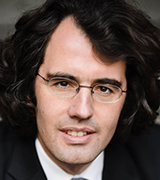Tribute to Pierre Hassner

 Pierre Hassner, directeur de recherche emerite au CERI
Pierre Hassner, directeur de recherche emerite au CERI
Cogito n°4 - Focus on education and inequalities
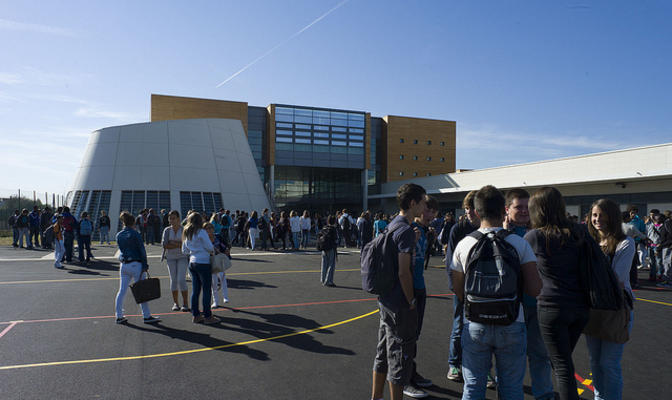
 Collège Auguste Renoir - Copyright : Laurent Schneiter
Collège Auguste Renoir - Copyright : Laurent Schneiter
Discover the fourth issue and its feature story on new research on education and inequalities.
A variety of topics is also explored: the evolution of the production designer’s trade; what the rich think of the poor; how the market for generic medicines formed; the new orientations of economic science, etc., as well as profiles of two recent PhD graduates awarded for their theses and an odd data relative to the French democracy.
Patrick Le Galès awarded the prestigious CNRS silver medal

 Patrick Le Galès, directeur de recherche CNRS au CEE
Patrick Le Galès, directeur de recherche CNRS au CEE
Patrick Le Galès, CNRS research director at Sciences Po’s Center for European Studies and Comparative Politics (CEE), dean of the Urban School and Fellow at the British Academy, has just received the prestigious CNRS silver medal. The distinction recognizes the quality of his research in political science and sociology, as well as his participation in the creation of the CEE, a leading laboratory for the social sciences in Europe, and the creation of Sciences Po’s Urban School three years ago.
From Brittany to Sciences Po and beyond
Patrick Le Galès left Saint-Brieuc to pursue his studies at Sciences Po with Henri Mendras, whom he joined at Nanterre for his thesis in sociology with Odile Benoit-Guilbot. He was then admitted to the prestigious Nuffield College at Oxford, where he obtained a Master of Letters (MLitt) in political science comparing British centralization and French decentralization. His thesis advisor, the brilliant and non-conformist Vincent Wright, was then one of the first comparative European researchers in public policies and political economy. He became both a friend and mentor. Patrick Le Galès was recruited by the CNRS at Sciences Po Rennes in 1992. He joined Sciences Po and CEVIPOF in 1998, and helped create Sciences Po’s Center for European Studies and Comparative Politics (CEE) in 2008. His comparative work draws on research visits to the European Institute in Florence, King’s College (where he taught for three years), UCLA, Northwestern, Helsinki, the Max Planck Institute in Cologne, the Colejio of Mexico, the University of Sao Paolo and Oxford, his second home, as well as constant exchanges with leading French research centers, especially regional ones.
Sciences Po in 4th place

 Classement QS 2018
Classement QS 2018
Over the past five years, the QS World University Rankings have confirmed Sciences Po’s place amongst leading universities in the social sciences
This year, for the third year in a row, Sciences Po is 4th in the world in the “Politics and International Relations” subject category, just behind Harvard, Oxford, and Princeton. Among the one thousand world-leading universities in this category, Sciences Po is the first of continental Europe.
In sociology, Sciences Po’s upward progression is reaffirmed with a ranking that has improved year after year: since coming in 50th and then in 44th position the past two years, we are now 37th this year.
In history and in law, Sciences Po maintains its position within the 51st and 100th positions. Sciences Po also upholds its rank in economics, between the 100 and 150th positions.
At the national level Sciences Po affirms its position : 1st in Political Science & International Relations as well as in Sociology, 2nd in Law and History and 3rd in Economics.
International Partnerships
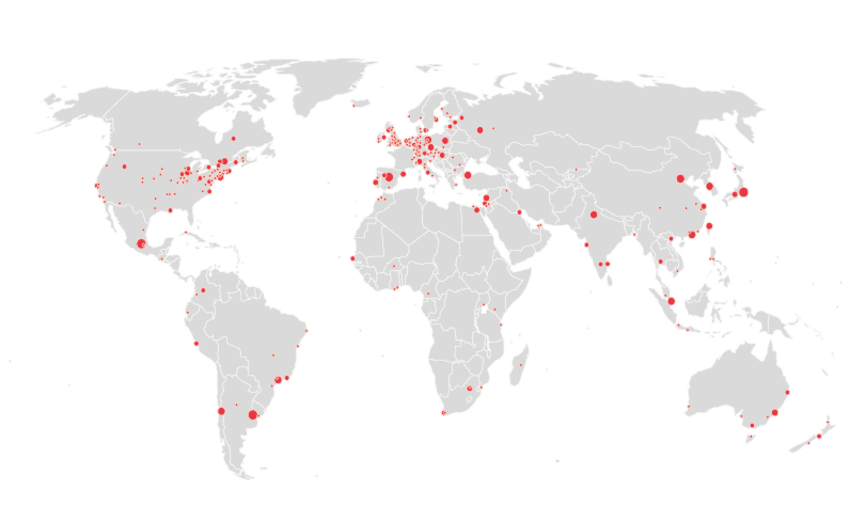
 Sciences Po International Partnerships
Sciences Po International Partnerships
Partnerships with international leading institutions take an ever more important role in the strengthening of research at Sciences Po. They enable scientific cooperation and mobility between teachers/researchers and PhD students of the partner institutions.
Oxford, Cambridge, the London School of Economics, Harvard, Princeton, Northwestern, Columbia, the Max Planck for the study of societies de Cologne are among our main partners.
The RICardo Project
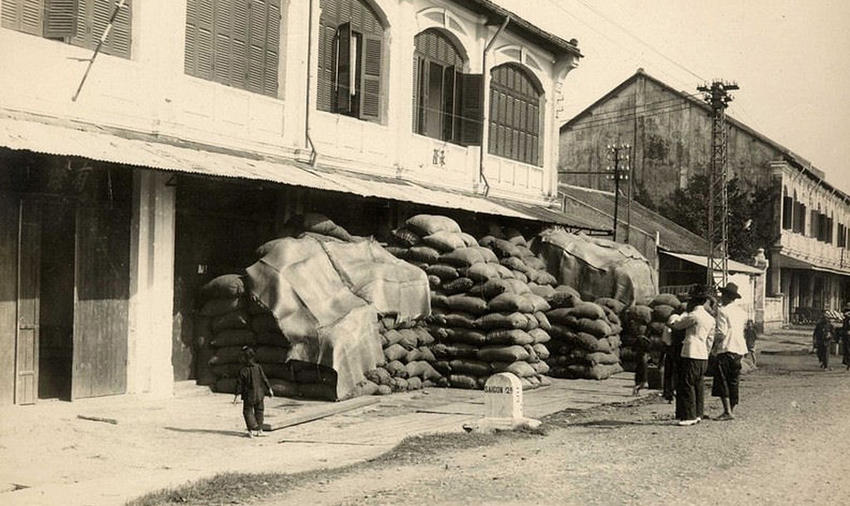
 Actualité Sciences Po
Actualité Sciences Po
RICardo (Research on International Commerce) is a project dedicated to trade between nations over a period spanning the beginning of the Industrial Revolution to the eve of the Second World War.
It combines a historical trade database covering all of the world’s countries and a website which invites to an exploration of the history of international trade through data visualizations.
Destabilizing Orders - Understanding the Consequences of Neoliberalism
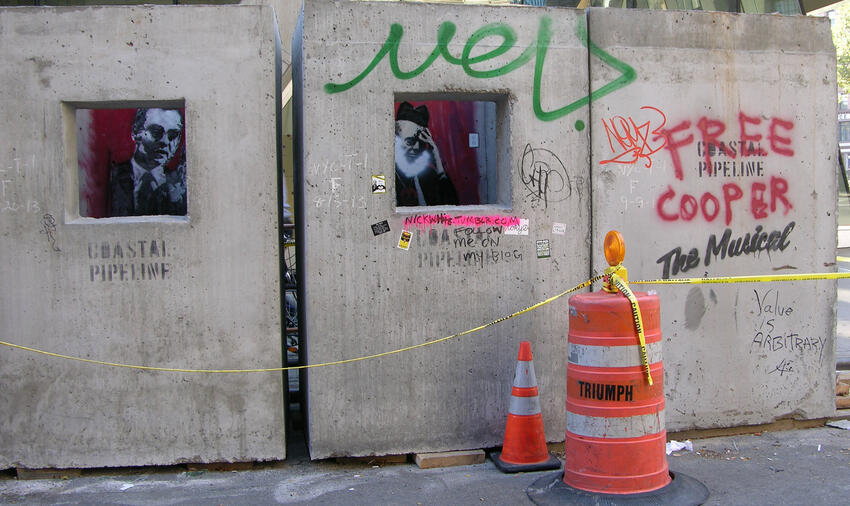
 2013 street art at Cooper Square by English artist Banksy, CC BY-SA 3.0
2013 street art at Cooper Square by English artist Banksy, CC BY-SA 3.0
Through the long postwar period, crisis was a conjectural phenomenon, exceptional in a normalcy of growth and social progress. Many key concepts of the social sciences – indeed, our understanding of democracy, of embedded markets, of enlightened electorates, benevolent political elites, and problem-solving progressive alliances – seem inapt for understanding the current societal upheaval.
In the wake of the financial crisis of 2008, we have witnessed majority alliances breaking down, populism returning on a grand scale both in the Western world and globally, and the new patterns of social mobilization erupting into chaotic and sometimes violent protest. The forces that underpinned the framework of welfare capitalism seem obsolete in the face of financial and political elites that are paradoxically both disconnected from national territory and sometimes in direct alliance with nationalist and populist movements. Politics of resentment, politics of place, and new politics of class interact in ways that we do not yet understand. Perhaps the greatest paradox of all is that neoliberalism has spawned authoritarianism. At the same time, these processes are not at all new, but must be put in the context of the socioeconomic and cultural cleavages produced by the shift to neoliberalism since the 1970s.
The conference addresses the different facets of social destabilization that we observe today. It marks the fifth anniversary of the founding of MaxPo, the Max Planck Sciences Po Center on Coping with Instability in Market Societies. Presentations will analyze different aspects of the overarching phenomenon of social destabilization trying to identify common threats in the diverse developments currently to be observed.
Registration required (Day 1 - 12/01/2018)
Registration required (Day 2 - 13/01/2018)
Detailed programme here
3 Doctors Honoris Causa
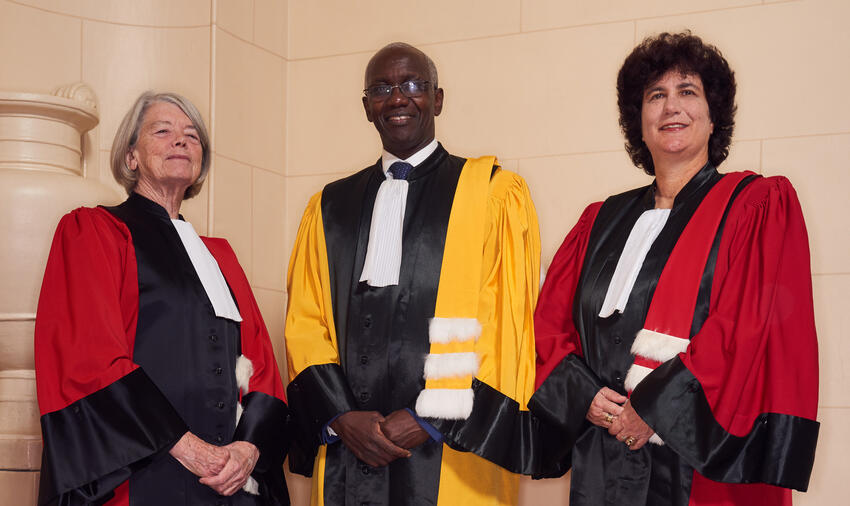
 Jane Mansbridge, Ibrahima Thioub, Daphne Barak-Erez
Jane Mansbridge, Ibrahima Thioub, Daphne Barak-Erez
On September 13, 2017, Sciences Po awarded Doctor Honoris Causa to Daphne Barak-Erez, Jane Mansbridge and Ibrahima Thioub. Three outstanding personalities whose work have greatly marked contemporary thinking and distinguished themselves through their commitment to the fight for a fairer, enlightened and, peaceful society.
Watch this captivating ceremony
Introduction by Olivier Duhamel, President of the Fondation nationale des sciences politiques and by Frédéric Mion, director of Sciences Po
Address of Daphne Barak-Erez, Professor at the Law Faculty of Tel-Aviv University and member of the Supreme Court of Israel, in response to the praise pronounced by Christophe Jamin, director of the Sciences Po Law School. (English starts at 1'18)
Address of Jane Mansbridge, Charles F. Adams Professor of Political Leadership and Democratic Values at Harvard Kennedy School in response to the praise pronounced by Annabel Lever, Professor at Sciences Po and researcher at the Sciences Po Center for Political Research (CEVIPOF)
Address of Ibrahima Thioub, Professor at Cheikh Anta Diop University (Dakar, UCAD), Rector of UCAD, in response to the praise pronouced by Jakob Vogel, Professor at Sciences Po, and researcher at the Sciences Po Center for History. (in French)
Islamic Networks between South Asia and the Gulf
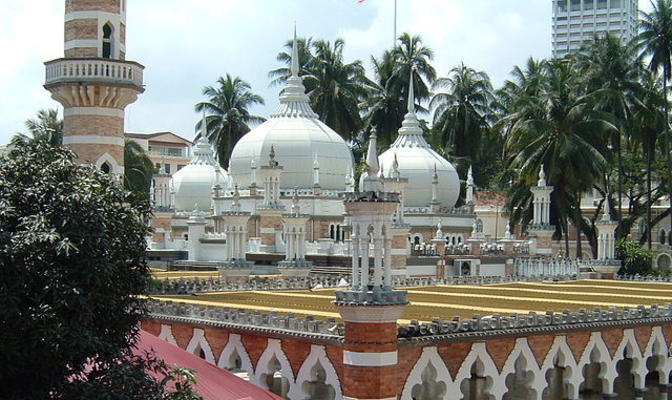
 Mosque Jamek, by Mohd Hafiz Noor Shams
Mosque Jamek, by Mohd Hafiz Noor Shams
Over the last fifty years, pan-Islamic ties have intensified between South Asia and the Gulf. Gathering together some of the best specialists on the subject, Laurence Louër and Christophe Jaffrelot (CERI) explore these ideological, educational and spiritual networks in a book entitled Pan Islamic Connections. Transnational Networks between South Asia and the Gulf (Hurst & Co, December 2017). Interview by Miriam Périe
Despite a traditional geographical division establishing a clear cut between the Persian Gulf countries (associated with the Middle East) and the Indian sub-continent (perceived as Asian), these two regions of the globe have been maintaining commercial and cultural links for centuries, that have notably translated into massive migration. In the religious field, which we shall explore through this work, these connections have taken the form of pilgrimage routes that have not only conducted Muslims from South Asia to Mecca, but also to Karbala, Qom and Najaf, for the Shiites. In parallel, religious education networks have developed to form clerics but more generally the religious spirits. Since the 1980s (the period this volume focuses on) these exchanges and interactions have paired up with the intensification of Islamic connections within the framework of the Afghan war and the emergence of transnational networks like al-Qaida.
What are the main historical dynamics that have triggered and are at the heart of the religious connection between the Gulf monarchies, Iran, India and Pakistan?
The transnational dynamic existing between the Gulf countries and South Asia is first and foremost overdetermined, in religious terms, by the rivalry opposing Iran and Saudi Arabia. This rivalry naturally includes the conflict between Sunnis and Shiites, called “sectarianism” in the region. Large South Asian countries—Pakistan, in particular—are for the most part Sunni yet they also have a strong Shiite minority that Iran has tried to use to export its revolution in 1979 and later in the 1980s. Saudis have immediately acted to counter the Iranian influence by supporting activist Sunni groups and by funding madrassas (Qur’anic schools). Some states, Pakistan for instance, have welcomed this Saudi presence, while avoiding to cause an escalation of the sectarian conflict.
Cambridge and Sciences Po strengthen ties

 Cambridge
Cambridge
The two universities consolidate their partnership at a time when collaboration across the channel is more crucial than ever.
On 24 November, Frédéric Mion, President of Sciences Po, and Eilís Ferran, Pro-Vice-Chancellor for Institutional and International Relations of the University of Cambridge, signed an agreement to strengthen the universities’ long-standing partnership.
The cooperation framework aims to develop research links in disciplines such as politics, history and public policy, with a strong expectation that the collaboration will develop to include other areas of mutual interest. The signing ceremony held at Sciences Po in Paris on Friday marked the beginning of the initial three-year term of the agreement.
"Collaboration between academic institutions is more crucial than ever before"
Both parties have committed to providing matched funds to finance academic workshops and symposia, travel grants, short-term research visits and visiting professorships at both Sciences Po and Cambridge. Other bilateral activities specified in the agreement include encouraging student mobility and establishing teaching fellowships for Cambridge PhD students at Sciences Po campuses in Reims, Menton and Le Havre, where lectures are given in English.
“This Memorandum of Agreement builds on strong existing relationships between our two world-leading universities,” said Professor Ferran after the signing. “It offers us a formal mechanism to strengthen our partnership at a time when collaboration between academic institutions is more crucial than ever before.”
One of the first joint actions to arise from this new agreement between Cambridge and Sciences Po is a public conference on “The Future of Europe” to be held in Paris in 2018, led by European studies specialists from both institutions.
- Find out more about the Cambridge-Sciences Po Research Cooperation Agreement
Patrick Le Galès has received
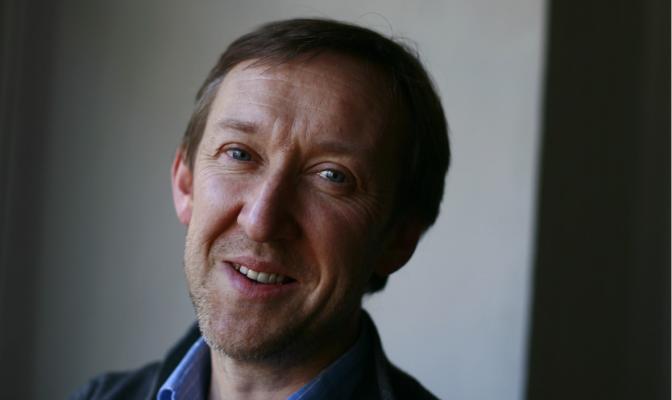
 Patrick Le Galès.Copyrights: Franck Ferville
Patrick Le Galès.Copyrights: Franck Ferville
Patrick Le Galès, CNRS Research Professor at the Centre d’études européennes and Dean of Sciences Po Urban School, has received the 2017, Regional Studies Association Best Paper Award for the journal Territory, Politics, Governance for his paper "Neoliberalism and Urban Change: Stretching a Good Idea Too Far?" published in Territory, Politics, Governance, Volume 4, 2016 - Issue 2: The Neoliberal City: Theory, Evidence, Debates
Cogito 3

 Harbor by Thomas. Flickr CC BY-NC-ND 2.0
Harbor by Thomas. Flickr CC BY-NC-ND 2.0
This third issue of Cogito opens with a feature on the fundamental challenges that metropolises are facing around the world with regard to the environment, housing, diversity, security, new technologies, etc. Be they are chronic or recent these issues are at the heart of changing power relations. They are explored in many innovative analyses by Sciences Po researchers that are presented here. This issue also delves into the latest publications and research projects, and introduces promising recent PhD graduates.
Focus
In Folio: Recent Publications
- Nationalist diasporas? The Jewish American diaspora and long-distance nationalism
- Disability: from public action to life experiences
- Obama facing crises
- Between here and there… The transnational ties of immigrants and of their descendants
- What has become of the State in Europe?
- Jobs at risk from technology : When supervising machines is work in its own right
- When the Internet sheds light on the transformation of messages
Kick-off: new contracts
- The carbon footprint of French households and international trade
- The 1970s: the European left and globalization
- Renewable energy and network structuring in Europe.
- Choosing a nutritional label: irreconcilable interests
- The “Cities and Digital Technology” Chair
Rising stars: PhD students & young researchers
Nine researchers and professors
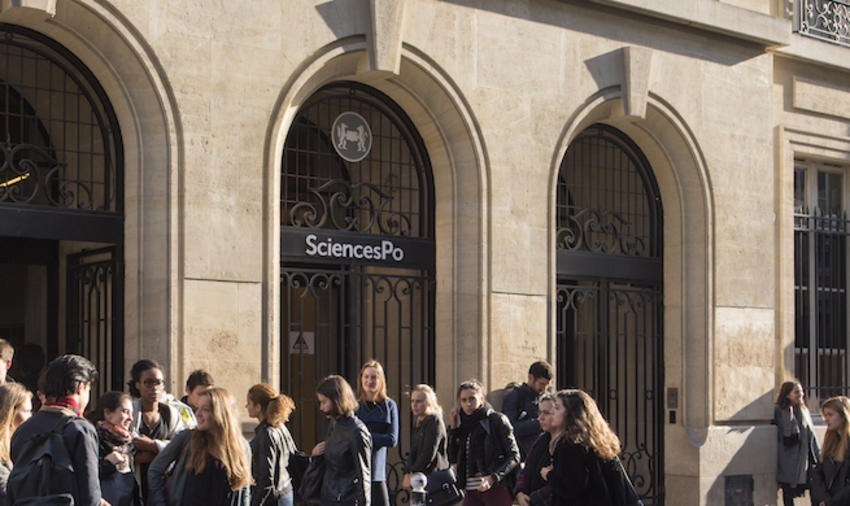
 L'entrée de Sciences Po Paris, 27 rue Saint-Guillame.
L'entrée de Sciences Po Paris, 27 rue Saint-Guillame.
 New faculty members at Sciences Po 2016-2017. Crédits : Sciences Po
New faculty members at Sciences Po 2016-2017. Crédits : Sciences Po
Since last fall, Sciences Po’s permanent faculty has welcomed nine new professors and researchers who cover a wide range of disciplines and topics. Their research will enrich our inquiries, knowledge and teaching. Learn more about Jean d’Aspremont, Ghazala Azmat, Anne-Laure Beaussier, Jean-Philippe Cointet, Eberhard Kienle, Stéphanie Latte Abdallah, Annabelle Lever, Laura Morales and Matthias Thiemann.
In Law
Jean d’Aspremont
University professor Jean d’Aspremont has joined the Law School. He holds a doctorate in law from the University of Louvain, has taught at the University of Amsterdam and has acted as counsel in proceedings before the International Court of Justice. He also founded the Manchester International Law Centre, where he held the chair in public international law. Both his theoretical and empirical research focuses on the analysis of this area of law, especially issues related to international organizations, international law, State responsibility, the foundations of law and methodology.
Learn more (in French)
In Economics
Ghazala Azmat

University professor Ghazala Azmat has joined Sciences Po’s Department of Economics and Laboratory for Interdisciplinary Evaluation of Public Policies (LIEPP). Ghazala Azmat holds a PhD from the London School of Economics and has taught at Pompeu Fabra University and Queen Mary University.
As a researcher associated with the Centre for Economic Performance (LSE) and affiliated with the prestigious CEPR, she is an expert on applied and empirical microeconomics. He research especially focuses on issues related to competition, economic incentives, organizational structures, labor economics, education and public economics.
Learn more
In History
Stéphanie Latte Abdallah
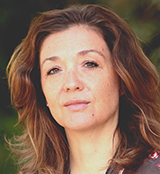
The historian and political scientist Stéphanie Latte Abdallah, a CNRS research fellow, has joined Sciences Po’s Centre for International Research (CERI). She is an Arabist who previously worked at the French Institute for the Near East, where she focused on the Palestinian Territories. After studying the history of Palestinian refugees, especially women in the camps, she pursued research on gender and feminism in Arab societies, including Islamic feminism. More recently she has explored the issue of borders in Israeli-Palestinian areas, the Israeli-Palestinian prison environment and citizen and alternative mobilizations.
Learn more
In computer science
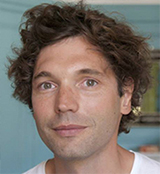 Jean-Philippe Cointet
Jean-Philippe Cointet
Jean-Philippe Cointet has joined the médialab as Associate Professor. He is a graduate of the École Polytechnique et des Eaux et Forêts. He completed his PhD at the Complex Systems Institute and started his career at INRA, where he developed textual analysis methods for the social sciences. Some of his research was pursued in partnership with Columbia University’s INCITE center. Because of their methodological nature, his research questions lead him to explore various empirical fields, including the press, scientific communities, social networks, online comments and political discourse
Learn more
In political science
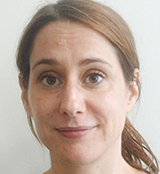 Anne-Laure Beaussier
Anne-Laure Beaussier
CNRS research fellow Anne-Laure Beaussier has joined Sciences Po’s Centre for the Sociology of Organizations (CSO). Anne-Laure Beaussier holds a PhD from the University of Montpellier and has pursued research at King's College in London. She takes an international comparative approach and uses qualitative methodologies to study the regulation of risks in Europe and health policies in the United States and in Europe. She focuses on health insurance in the United States and access to care and the regulation of medical care quality in Europe.
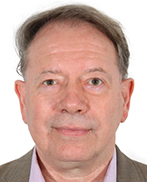 Eberhard Kienle
Eberhard Kienle
CNRS research director Eberhard Kienle has joined Sciences Po’s Centre for International Research (CERI). After working in Europe (Berlin and London) and the Middle East (Cairo, Beirut), Eberhard Kienle became director of the French Institute of the Near East (IFPO). He studies the political and economic dimensions of Middle Eastern societies. His research on the transformation of political regimes and States in this region and on the upheavals it has experienced since the Arab spring has been influential. He engages broadly by contributing his expertise to public discussions.
 Annabelle Lever
Annabelle Lever
University professor Annabelle Lever has joined CEVIPOF after holding many positions abroad.
She is a political scientist and historian whose research lies at the intersection of contemporary political philosophy and ethics. Her research focuses on public policies, as well as issues related to privacy, gender equality, democracy and security, their understanding and their combination. Finally, she has developed in-depth reflection on voting ethics
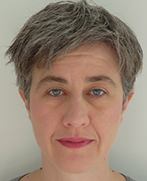 Laura Morales
Laura Morales
Political science professor Laura Morales has joined Sciences Po’s Centre for Europe Studies after pursuing research in Spain and in Great Britain. She studies political life, parties and public opinion from a comparative perspective. She also conducts research on immigration policies. As part of a project funded by the European Research Council (ERC) she is currently conducting research on governments’ response to modes of expression mobilized in democracies.
Learn more
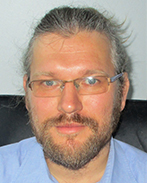 Matthias Thiemann
Matthias Thiemann
Matthias Thiemann has joined Sciences Po’s Centre for European Studies as Assistant Professor. He holds a PhD from Columbia University in New York and was a member of Goethe University in Frankfurt. His research focuses on regulation of the banking system and of financial markets, and particularly interactions between regulation, regulators and the regulated. His other major research area explores systemic risks, such as the landmark 2008 subprime crisis.
Sciences Po in the world's top 50 for social sciences
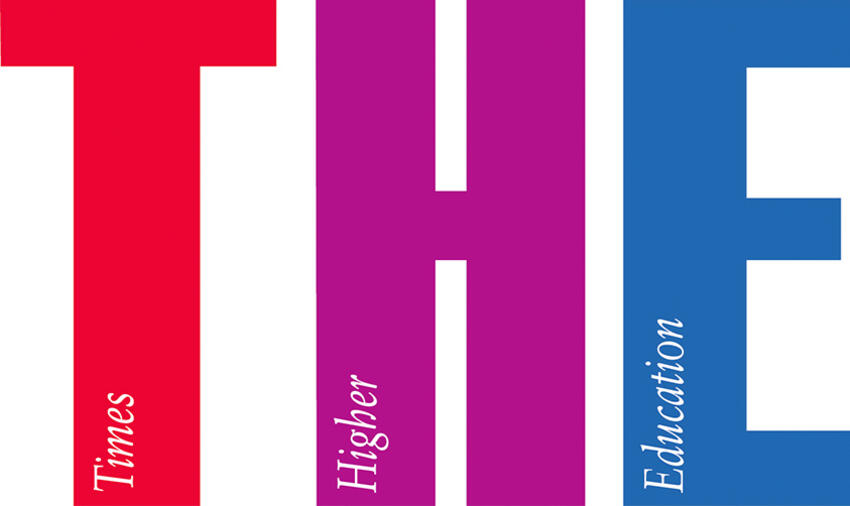
 Logo Times Higher Education Crédits Times Higher Education
Logo Times Higher Education Crédits Times Higher Education
The 2018 Times Higher Education World University Rankings by subject places Sciences Po in 50th position worldwide for social sciences. Sciences Po ranks first among French universities in the subject.
This result attests to Sciences Po’s excellence in teaching and research in sociology, geography, political & international studies, and communication & media studies.
The ranking also emphasises Sciences Po’s highly internationalised student body. With 45 percent of its students coming from outside France, Sciences Po is the 11th most international university among all universities ranked in social sciences, and the most international French university.
Find out more about the 2018 Times Higher Education rankings by subject
Pierre François,
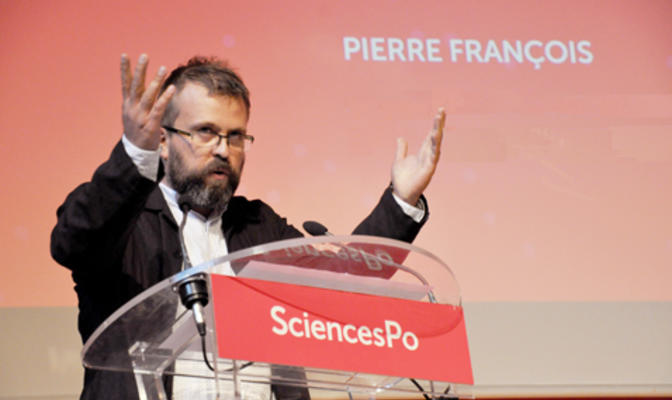
 Pierre François, New Director of the Doctoral School
Pierre François, New Director of the Doctoral School
On September 1st 2017, Pierre François became the head of the Doctoral School. He succeeds Jean-Marie Donegani, who is leaving this post but will continue his teaching and research activities at Sciences Po.
Pierre François is a sociologist and CNRS research director at the Center for the Sociology of Organizations (CSO). He served as director of Sciences Po’s department of sociology from 2014 to 2017. His research focuses on the dynamics of the worlds of art – particularly contemporary poetry – and on the sociology of businesses and their leaders. Pierre François teaches in Sciences Po’s masters program as well as the Collège universitaire (undergraduate level), where he teaches the introduction to sociology course. He was a professor of sociology at the École polytechnique between 2009 and 2017. Pierre François aims to enable Sciences Po’s Doctoral School to meet the twin challenges of research internationalization and of the growing scientific and methodological requirements it involves. The major priorities identified for the coming years include:
- Interdisciplinary dialogue in the humanities and social sciences,
- The funding model for doctoral research,
- The international mobility of students and junior researchers,
- The development of institutional partnerships of excellence in France and abroad,
- The professional integration of graduates and recent PhD graduates.
“The Doctoral School of Sciences Po has a unique position in France and in the world that it is our job to make fruitful by bolstering its international openness and reinforcing the relationship between the masters and doctoral programs and between the training in, and application of research”, emphasizes Sciences Po director Frédéric Mion.
Social Classes in Contemporary Societies

 Actualité Sciences Po
Actualité Sciences Po
On 29-30 June 2017, the Sciences Po's Observatoire sociologique du changement organised an international symposium about "Social Classes in Contemporary Societies: Issues and Challenges"
Watch the video report made during the event.
The two-day symposium tested the relevance of the approach to better understanding of social and political issues in terms of classes.
All the presentations focused on recent empirical research conducted in various national contexts (Europe, North America, Latin America, South-East Asia) and are based on various methodologies and theoretical approaches.
The symposium highlighted the polysemy of the notion of social class. Three types of definition were mobilized during the presentations.
- A first definition, impregnated with the Marxist filiation and the work of Erik Olin Wright, is based on the criterion of workplace ownership and authority relations.This definition has been used in several papers on the dynamics of income and wealth inequality (Wodtke, Chauvel) and also partly on political attitudes and voting (Oesch).
- A second definition closely links social classes to occupational groups.It is the dominant definition in communications devoted to social mobility issues (Costa-Ribeiro, Lopez-Roldan & Fachelli, Vallet), inspired by the work of John Goldthorpe.
- The third definition is part of an inductive, constructivist approach to the notion of class, by closely combining the objective and subjective aspects of the notion.
Everything about 2016!
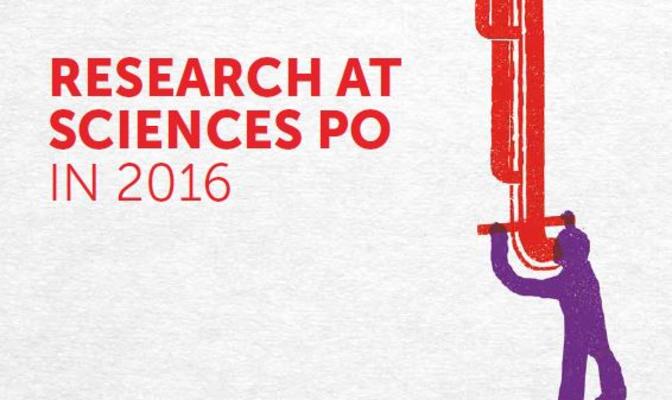
 Actualité Sciences Po
Actualité Sciences Po
What were the main results of the research at Sciences Po in 2016? What were the publications, projects, recruitments that marked this year 2016? What has happened in terms of referencing scientific publications, open access, dissemination of knowledge, doctoral training, international partnerships, European funding or recruitment strategy? What has been the profound transformation of governance and research architecture at Sciences Po?
Reflections on competition as a social and economic phenomenon, tributes to Elie Halévy, collaborations on Africa in international relations, new works on citizen participation of the most deprived, on state feminism, wage inequalities, urban segregation, attractiveness of political parties, or the history of Mediterranean coasts ecosystems: so much to discover in this new annual report!
Ruben Durante

 The 2017 AEJ Best Paper Awards Have Been Announced
The 2017 AEJ Best Paper Awards Have Been Announced
The American Economic Association announced the 2017 edition of the AEJ Best Paper Awards this month.
Ruben DURANTE, Associate Professor of Economics at SciencesPo and CEPR Affiliate, along with his co-authors, were awarded the prestigious AEJ :Applied Economics Best Paper prize for their paper «Market-Based Lobbying : Evidence from Advertising Spending in Italy » published in AEJ: Applied Economics, Vol. 8, No. 1, January 2016
The study demonstrates how firms in Italy changed their advertising spending when media mogul Silvio Berlusconi was in power. They estimate that Berlusconi’s private television network, Mediaset, saw a significant boost in advertising spending from firms between 1993-2009, especially from companies in more regulated sectors.
Link to the AEA Best Paper Awards announcement
Foucault and the Modern International
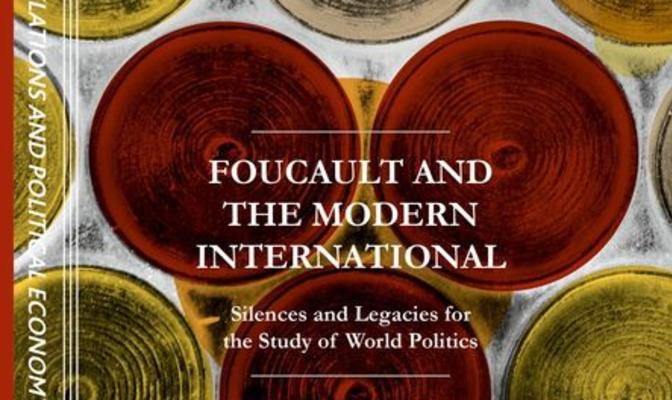
 Foucault and the Modern International
Foucault and the Modern International
Edited by Didier Bigo (CERI,Siences Po) Frédéric Gros (CEVIPOF-Sciences Po) and Philippe Bonditti, Foucault and the Modern International. Silences and Legacies for the Study of World Politics (Palgrave) addresses the possibilities of analyzing the modern international through the thought of Michel Foucault. The broad range of authors brought together in this volume question four of the most self-evident characteristics of our contemporary world-'international', 'neoliberal', 'biopolitical' and 'global'- and thus fill significant gaps in both international and Foucault studies. The chapters discuss what a Foucauldian perspective does or does not offer for understanding international phenomena while also questioning many appropriations of Foucault's work. This transdisciplinary volume will serve as a reference for both scholars and students of international relations, international political sociology, international political economy, political theory/philosophy and critical theory more generally.
Wages, Bonuses and Appropriation of Profit in the Financial Industry

 Day 60 Occupy Wall Street November 15 2011 by David Shankbone
Day 60 Occupy Wall Street November 15 2011 by David Shankbone
Olivier Godechot is codirector of MaxPo, Sociology Professor at Sciences Po and Research Professor at CNRS publishes Wages, Bonuses and Appropriation of Profit in the Financial Industry (Routledge) in which he provides an in-depth inquiry into the bonus system.
Drawing on examples from France, the City and Wall Street, it explains how and why workers in the financial industry can receive such large bonuses. The book examines issues around incentives, morality and wealth-sharing among employees, including the rise of "the working rich" – those who have benefited the most from the high wages and large bonuses on offer to some employees. These people have achieved wealth through their work thanks to new forms of exploitation in our ever-more dematerialised economy. This book shows how the most mobile employees holding the most mobile assets can exploit the most immobile stakeholders. In a world where inequalities are rising sharply, this book is therefore an important study of one of the key contemporary issues.
Interview
What do you mean by “financialization” and why is it important?
Olivier Godechot: The concept of financialization is multi-dimensional. It can refer to the growth of the financial sector as a whole, or of financial market activities only, or go beyond the finance sector to the financialization of non-financial institutions, firms or households. I show that when measured through its impact on inequality, financialization is primarily a phenomenon of marketization, which I propose to define as the increase in social activity devoted to trade in securities on financial markets. Contrary to previous scholarship inspired by Marxist or heterodox economics, which generally focused on macro-social mechanisms in terms of financial regimes, power resources, and global bargaining power, I try to go further by pinning down the precise mechanisms at stake within the financial labor market.
Sciences Po supports
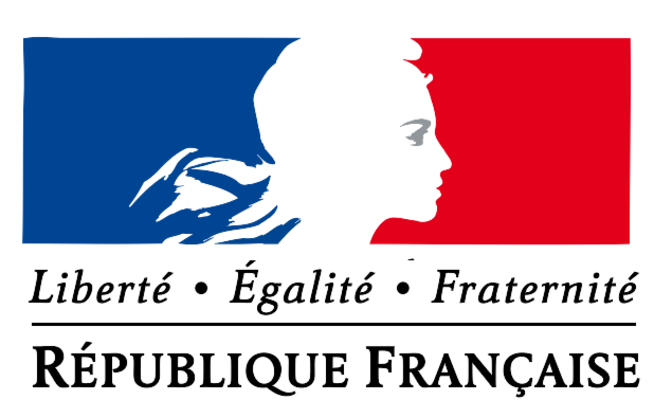
 Liberté, égalité, fraternité
Liberté, égalité, fraternité
The Scientific Council of Sciences Po is solemnly protests against the situation of academics in Turkey, many of them being victims of a political repression from the goverment, unable to carrying out their teaching and research activities under normal conditions.
The Scientific Council is alarmed by the on-goint threat to academic freedom and recalls that the university is based on an undeniable principle: independence from any political, ideological, economic or religious pressure.
He expresses his solidarity with the Turkish academic community and, together with the Sciences Po administration, participates in the program PAUSE (Program of Assistance to the Emergency Hospitality of Scientists in Exile - Programme d’aide à l’Accueil en Urgence des Scientifiques en Exil) proposed by the French Ministry of Higher Education And Research, which aims to welcome Turkish academics in refugee situations.
Sciences Po ranks fourth in the world for Politics & International Studies
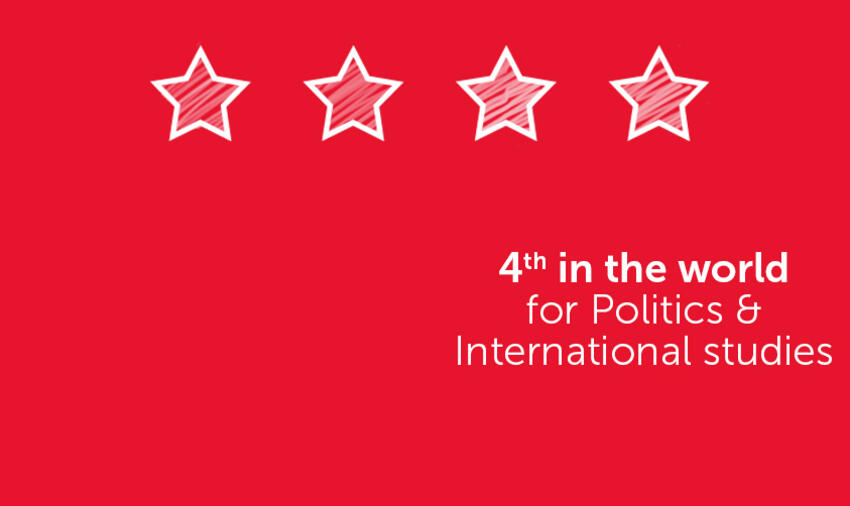
 Sciences Po News
Sciences Po News
The QS World University Rankings by subject 2017 have just been released. This year, Sciences Po remains in fourth place worldwide for Politics & International Studies, alongside Harvard University, Oxford University and the London School of Economics, and is again the highest ranked in the subject in Continental Europe.

Sciences Po has made remarkable progress in Sociology, climbing to 44th place internationally from 50th last year, and becoming the top French university in the subject.
Another notable breakthrough has been made in History, with Sciences Po entering the world top 100 in 2017. Sciences Po also keeps its top-100 spot in Law and remains the second highest-ranking French university in the subject.
Finally, Sciences Po is first in France for Social Policy & Administration, second for Communication & Media Studies and Development Studies, and third for Economics and Econometrics.
Related links
Cogito, Research Letter, n°2
1506.jpg?1490370913)
 Le 1er mai 2012, défilé du Front National. Crédits Blandine Le Cain
Le 1er mai 2012, défilé du Front National. Crédits Blandine Le Cain
In an election year full of twists, an overview of our work on elections – a central and foundational research subject at Sciences Po – was in order. This issue sheds light and encourages reflection on topics covering the sociology of the electorate, role of the media, voters’ assessment of polices, confidence in our elected officials and our institutions, electoral conditions beyond our borders, etc.
By presenting our recent notable publications, projects and theses, this second issue of Cogito also tackles other key matters shaping our vision of the future, including the environment, inequalities, urban transformation, state reform, and European vitality.
Focus
In Folio: Recent Publications
- The politics of administrative reorganization
- Israel: reasons for peace
- Stealing to Survive?
- Fraternity versus equality
- When the state champions the cause of women. A historical perspective.
- Competition. Revisiting a social and economic phenomenon
- Measuring inequalities between migrants and nationals
Kick-off: new contracts
- What policies promote home ownership?
- What pathways will lead to decarbonisation?
- Occupational risks under scrutiny
- Will Paris become a green city?
- Urban insecurity, a social issue
- Vulnerability of Knowledge and Nuclear
- The Post-crisis Legitimacy of the European Union
- A new perspective on the Allied war effort during the Second World War
Rising stars: PhD students & young researchers
Unexpected: Odd data
The ERC celebrates 10 years of excellence
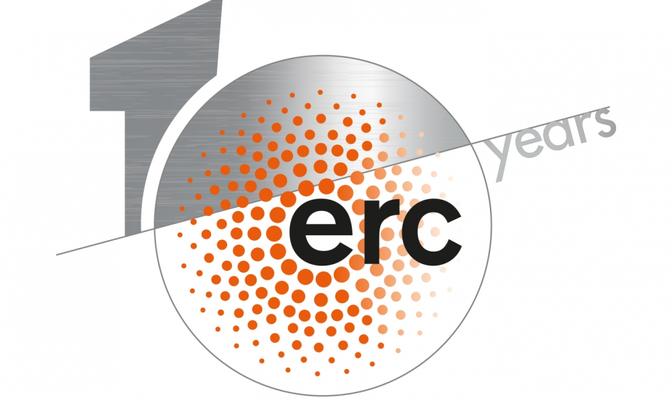
 ERC10yrs
ERC10yrs
As the European Research Council turns 10 year old, Université Sorbonne Paris Cité celebrates research excellence in Europe.
Sciences Po, along with the Ministère de l’Enseignement supérieur et de la Recherche, hosts a national event on Friday, March 17, 2017 to break barriers in humanities and social sciences. The day will begin with an open conference in which ERC laureates and world-class experts will tackle current issues in humanities and social science: what is groundbreaking research in these fields ? how can we translate these notions into research proposals ? We will also lay out recent advances in how to attract and retain ERC laureates in France, and to ensure international stature for humanities and social science works.
The conference will be followed by lunch workshops with laureates, National Contact Points and European project managers from USPC. Candidates will received personalised information on expected ERC profiles, evaluation, and project writing advice.
The Oxford Handbook of French Politics
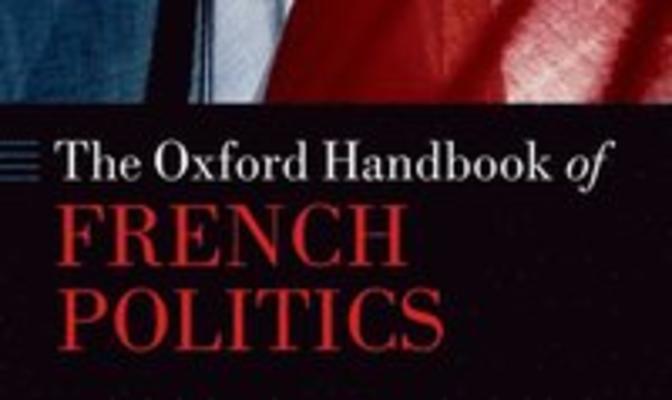
 Actualité Sciences Po
Actualité Sciences Po
The Oxford Handbook of French Politics, co-directed by Emiliano Grossman and to whitch 13 Sciences Po researchers have contributed, provides a comprehensive and comparative overview of the French political system through the lens of political science.
The Handbook is organized into three parts: the first part identifies foundational concepts for the French case, including chapters on republicanism and social welfare; the second part focuses on thematic large-scale processes, such identity, governance, and globalization; while the third part examines a wide range of issues relating to substantive politics and policy, among which are chapters on political representation, political culture, social movements, economic policy, gender policy, and defense and security policy.
The volume brings together established and emerging scholars and seeks to examine the French political system from a comparative perspective. The contributors provide a state-of-the-art review both of the comparative scholarly literature and the study of the French case, making The Oxford Handbook of French Politics an invaluable resource for anyone interested in the foundations of contemporary political life in France.




